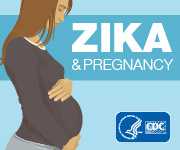Birth Defects Tracking in Oklahoma
Oklahoma Birth Defects Registry

1 in 28 babies born in Oklahoma has a major birth defect.
The Oklahoma Birth Defects Registry (OBDR) is essential for understanding the impact of birth defects in the state. The program works to protect and promote the health of babies born with birth defects in Oklahoma and their families.
Common. Costly. Critical.
- Of the 53,000 babies born in Oklahoma each year, more than 1,900 (3.7%) will be born with a birth defect or other serious condition.
- Birth defects are costly – hospital costs for the treatment of birth defects are more than $2.5 billion each year in the United States. In 2010, $110 million were spent treating infants with birth defects at Oklahoma hospitals. This amount reflects what it would cost to fund 220 volunteer fire departments or build 114 tornado shelters in schools and universities.
- Babies born with a birth defect are more likely to die before their first birthday, compared to babies born without a birth defect. Oklahoma’s rate of death in the first year of life is higher than the national average at 7.7 deaths for every 1,000 births.

About the Program
The OBDR is a system that looks for babies born with birth defects among all babies born in Oklahoma. One of 14 birth defects programs to receive a grant funded by CDC’s National Center on Birth Defects and Developmental Disabilities, the OBDR monitors about 53,000 babies born in Oklahoma each year.
The OBDR partners with the Oklahoma Newborn Screening Program, including hearing, metabolic, and critical congenital heart defect screening, to help identify children with multiple health care issues. The OBDR also partners with the “Preparing for a Lifetime – It’s Everyone’s Responsibility,” a statewide initiative to reduce infant mortality, the Oklahoma Health Care Authority, Oklahoma Family Network, Oklahoma Nurse-Family Partnership, and many other state-wide organizations.
The OBDR works to:
- Reduce the risk of having a baby with a birth defect
- Enhance early detection of birth defects
- Improve the quality of life of babies diagnosed with a birth defect and their families by serving as a resource for education, awareness, and advocacy
- Reduce infant mortality
Program in Action
-
Educates women and families: OBDR provides information about preventing birth defects and infant mortality.
- OBDR initiated a family advisory group made up of families, healthcare professionals, and community representatives dedicated to creating easy to understand health materials for Oklahoma families. For example, they developed the Newborn Pulse Oximetry Screening for critical congenital heart defects brochure, which will be distributed to 50,000 families a year.
- OBDR participates in Community Baby Showers and “Preparing for a Lifetime – It’s Everyone’s Responsibility”. These are programs designed to increase awareness of infant mortality among women of childbearing age.
- OBDR provides important information through partner newsletters, public service announcements, health fairs, and other presentations about care mothers should receive before and during pregnancy.
- Educates healthcare providers: OBDR provides information for doctors and nurses about factors that might cause birth defects, such as maternal behaviors, family history, and exposure to things that might harm a developing baby.
- Refers to local services: OBDR provides resources to families of children with birth defects and connects them to services, including local family mentoring programs and early intervention services.
- Collaborates with newborn screening: OBDR works with the state’s Newborn Screening Program to find children who might have several health problems and to help them receive important support services.
- Promotes folic acid: OBDR provides multi-vitamins with folic acid to women who receive services in county health departments throughout Oklahoma. Folic acid is important to preventing some severe birth defects of the brain and spine.
- Disseminates data: OBDR tracks birth defects, researches trends in birth defects, and provides information to healthcare researchers and policymakers. Information from the OBDR has helped in creating a legislative fact sheet about screening for critical congenital heart defects, as well as information that local communities can use to plan birth defect prevention activities.
Making a Difference
The OBDR services are having an impact on families in Oklahoma.
“Oklahoma’s Birth Defects Registry is the gateway by which our families learn about significant diagnoses in our children, ensuring earlier advocacy for their healthcare needs.”
— An Oklahoma mother of an infant with hypoplastic left heart syndrome
More Information
For more information on the Oklahoma Birth Defects Registry, please visit their website or call (405) 271-6617.
- Page last reviewed: June 12, 2017
- Page last updated: June 23, 2017
- Content source:



 ShareCompartir
ShareCompartir